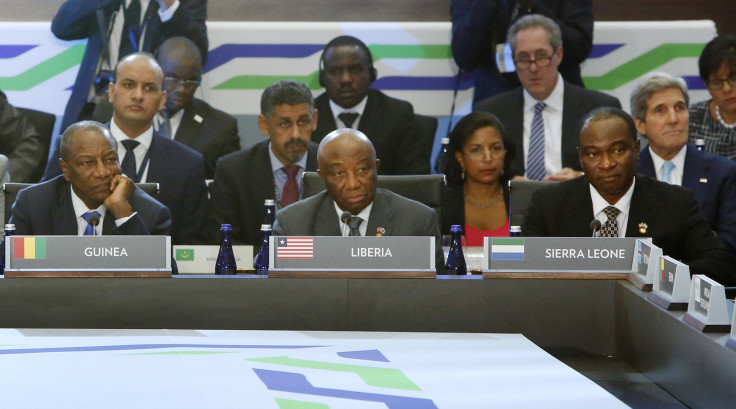Ebola Scare: People Turn to God as Wait for Cure Continues and Toll Keeps Rising

With no drug in sight for the next few months, and the Ebola virus continuing its relentless march, people in the African nations hit by the disease are turning to god.
In Sierra Leone and Liberia crowds filled churches on Sunday, defying official warnings to avoid public gatherings.
Churches in Monrovia provided chlorinated water for worshippers to disinfect their hands and pastors advised their congregations to follow instructions from health workers, instead of attacking them.
"We are in trouble here. We are in trouble," Reverend Marcus MacKay, dressed in a green gown, said before the altar. "But you know what? There is no way this devil is going to do its work!"
Straining under a collapsing healthcare system, Sierra Leone and Liberia have both declared states of emergency to tackle the highly contagious disease.
The World Health Organisation (WHO) has warned that the present outbreak will likely continue for months. With 1,779 cases and 962 deaths this one has been the worst so far. The numbers could be far higher given the fact that many cases may not be reported by locals.
Drug will be available by 2015, says WHO
A drug for Ebola could be available by next year as Glaxo SmithKline begins clinical trials next month, the WHO has said.
"We are targeting September for the start of clinical trials, first in the United States and certainly in African countries, since that's where we have the cases," Jean-Marie Okwo Bele, WHO's head of vaccines and immunisation, told AFP.
As nations stayed on high alert, panic gripped residents of a Hong Kong neighbourhood on news that a Nigerian who had just returned from one of the Ebola-stricken West African countries showed symptoms of the disease. But laboratory tests have turned negative.
Nigeria worries over rising numbers
Meanwhile, fears of the virus spreading across Nigerian city Lagos grew following indications that some persons who might have had contact with the late Patrick Sawyer are avoiding calls to turn in themselves for checks and further screening. Nigeria now has between 9 and 13 cases of Ebola.
Minister of Health Onyebuchi Chukwu said that "we have 9 confirmed cases out of which 7 are alive and receiving treatment and two are dead including the index case."
The minister said that while details of all primary contacts are known, the secondary contacts were much more in number and knowing about them depended on the information given by the primary contact.
© Copyright IBTimes 2025. All rights reserved.



















